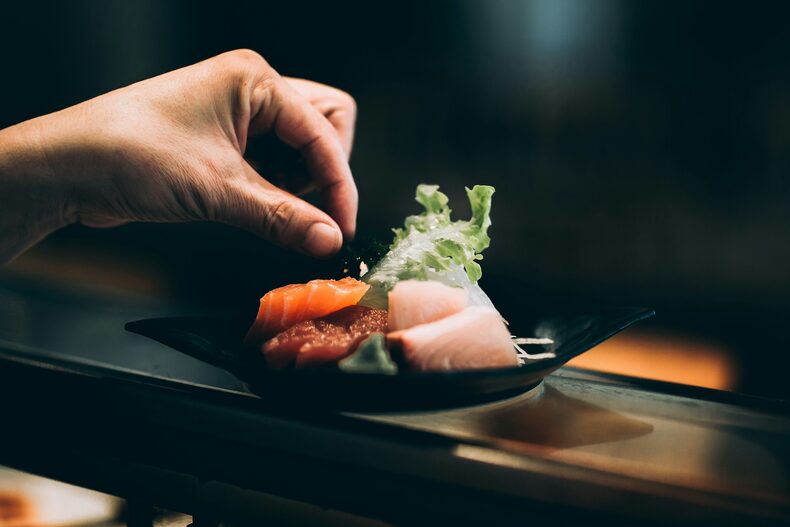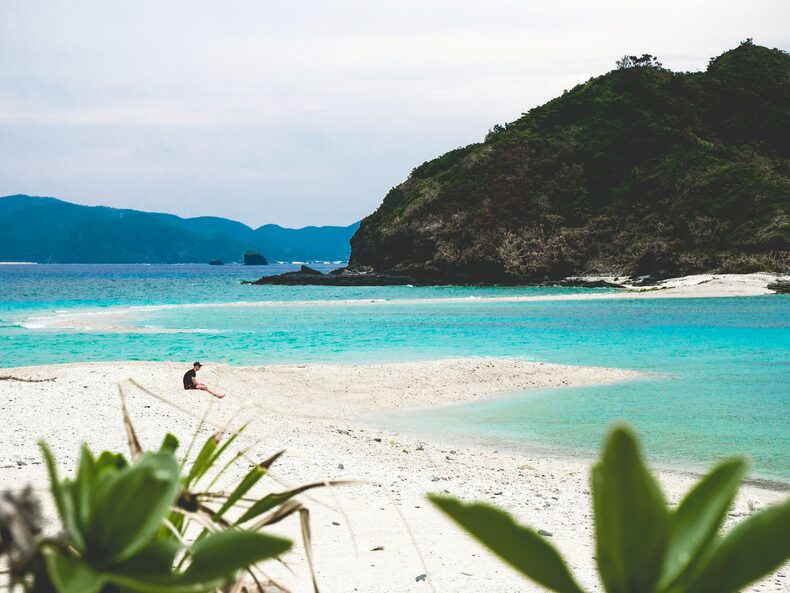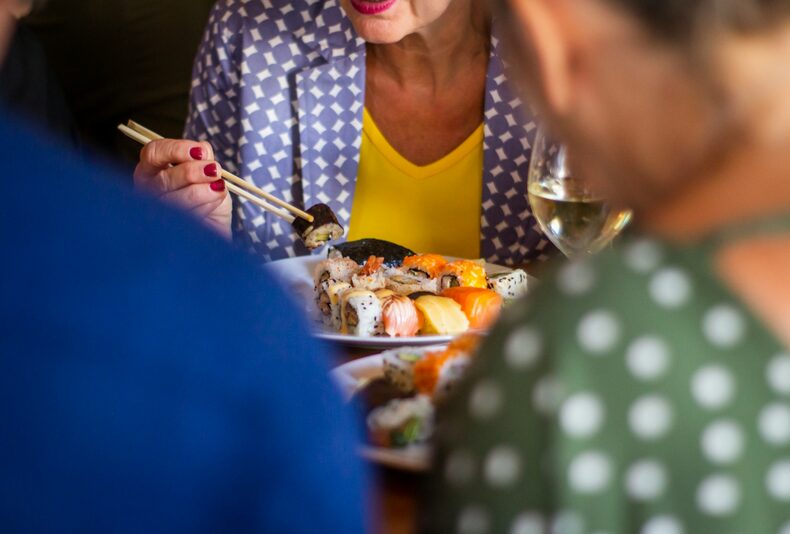Okinawa is an island in Japan that is considered a “blue zone” because its inhabitants usually live to be 100 years old or more. These are the foods they usually eat to stay healthy and strong even in old age.
It is not a magic elixir or a miracle injection. To live longer and healthier, experts are convinced that diet plays a fundamental role, because The data shows that in the “blue zones”, where there are residents with a higher standard of living longevity There is a common denominator: a healthy and balanced diet.
In this sense, The Japanese island of Okinawa is one of the most famous Blue Zones in the world, as its inhabitants can live to be 100 years old or more.
The most unique thing these islanders do is eat a diet rich in plant-based foods, which are anti-inflammatory, antioxidant and phytochemical, which according to different studies have beneficial effects on health.
This is how little by littleThe traditional Okinawan diet is gaining popularity among doctors and people who want to live longer. And, compared to the diet practiced in other parts of the world, its effects on maintaining youth are indisputable.
“If you want to age healthily, this is the perfect diet” said the professor of gerontology at the Okinawa International University, Craig Willcox .

How the Okinawan Diet Can Increase Longevity
Experts generally recommend the Mediterranean diet for its health benefits. However, The Okinawan diet is becoming increasingly relevant as it has positive effects on people and also seems to have the ability to prolong people’s lives.
However, there are still few studies that prove this. A recent survey published in the journal Nutrients demonstrated its benefits.
In this one, A group of people had to follow the Okinawa diet for 12 weeks to see how their bodies reacted, and the results were shocking: They lost weight, their blood sugar, insulin and cholesterol levels decreased, and their gut microbiota experienced positive changes.
Why does the Okinawan diet seem so beneficial for health?
Craig Willcox, professor of gerontology at Okinawa International University, said National Geographic that The basic characteristic of this Japanese diet is that it is “low in calories and rich in nutrients and fiber.”
The researcher, who is also co-director of the Okinawa Research Center for Longevity Science, assured that This type of diet “is rich in phytonutrients, including many antioxidants. It has a low glycemic load and is anti-inflammatory.”
The latter is very important for the longevity of people, because “Chronic, low-grade inflammation at the cellular level drives the aging process and age-related diseases such as heart disease, stroke, diabetes and cancer.”
Additionally, the Okinawan diet appears to strengthen the immune system and help it fight viral and bacterial infections by encouraging the body to generate more antibodies.

It also contributes to long-term brain health, prevent cognitive deterioration diseases that occur with age, such as dementia or Alzheimer’s disease.
According to WillcoxThe foods in this diet “activate FOXO3, the longevity gene, “which slows down the shortening of telomeres and reduces inflammation.” Telomeres are essential to the aging process in people: if their ends are damaged, cells age more quickly.
What foods are included in the Okinawan diet?
The people of Okinawa, one of the oldest populations in the world, They typically spend a lot of time outdoors and eat small amounts of food throughout the day and in moderation. according to Asako Miyashita, a Japanese dietician.
What stands out in your diet is that it is very low in calories and saturated fat, and high in carbohydrates, but of good quality.

Generally, The Okinawan diet uses sweet potatoes, a tuber rich in antioxidants that is usually substituted for rice. According to Willcox, this food is “a high-quality carbohydrate, so it doesn’t affect blood sugar.”
In this line, Here are the foods present in the Okinawan diet:
- Sweet potato.
- Soy (soy meat, tofu and miso soup).
- Green leafy vegetables (spinach, mustard greens, mizuna and cabbage).
- Legumes.
- Tubers (carrots, pumpkin, Italian zucchini, daikon radish).
- Mushroom.
- Algae.
- Fish.
- Fruits (bitter melon, grapes, bananas, green papaya).
- Very little meat (mostly pork).
- When it comes to drinking, the Japanese prefer:
- Tea (especially jasmine).
- Sake.
AND, To season their meals, they choose:
- Turmeric.
- Ginger.
- Bonito flakes.
- Soy sauce.
- Garlic.
“This is an extraordinarily healthy diet because it adheres to the fundamental theme of healthy eating: it’s real food, mostly vegetables, in a sensible, balanced package.” said to NatGeo David Katz, preventive medicine specialist.
Continuous: “Optimal nutrition keeps everything running smoothly so you can continue to run smoothly. By putting good fuel in the tank, you optimize the engine and, essentially, detoxify yourself every day.
In fact, between Foods that are almost absent from the traditional Okinawan diet are:
- Ultra-processed.
- Refined sugars.
- Red meat.
- Milkman.
But it’s not just about food. Okinawans also practice hara hachi bu, a practice which, when accompanied by a diet, has surprising results on health and longevity.
The idea is that people stop eating when they feel 80% full and wait because it usually takes a while for the body to feel full. In this way, Japanese people do not overeat, which helps them control their weight and have healthy digestion.
Source: Latercera
I’m Rose Brown , a journalist and writer with over 10 years of experience in the news industry. I specialize in covering tennis-related news for Athletistic, a leading sports media website. My writing is highly regarded for its quick turnaround and accuracy, as well as my ability to tell compelling stories about the sport.


